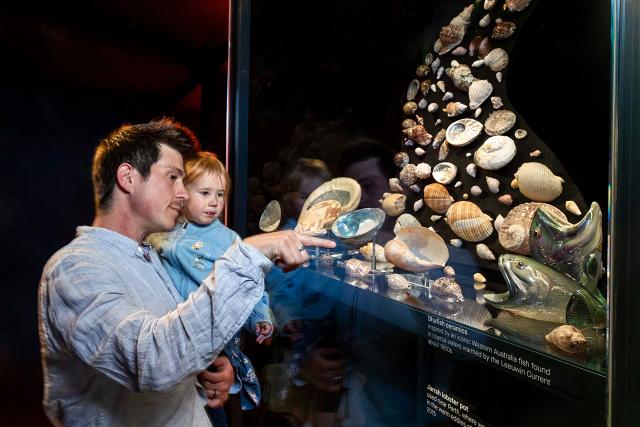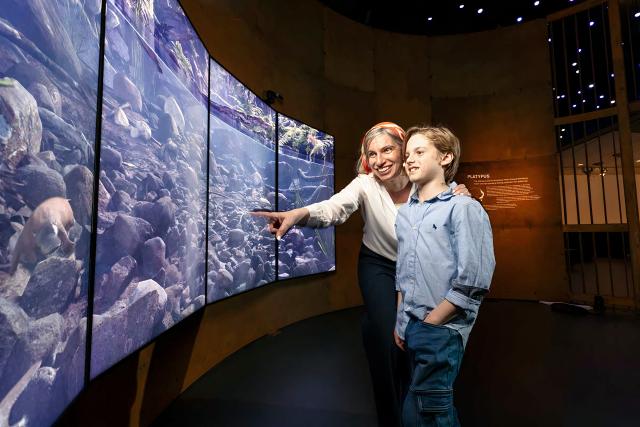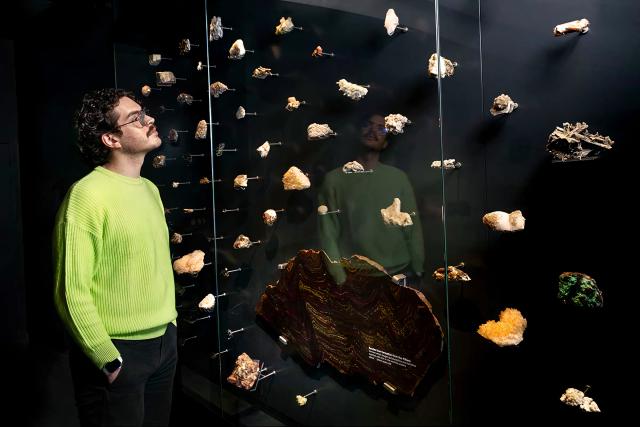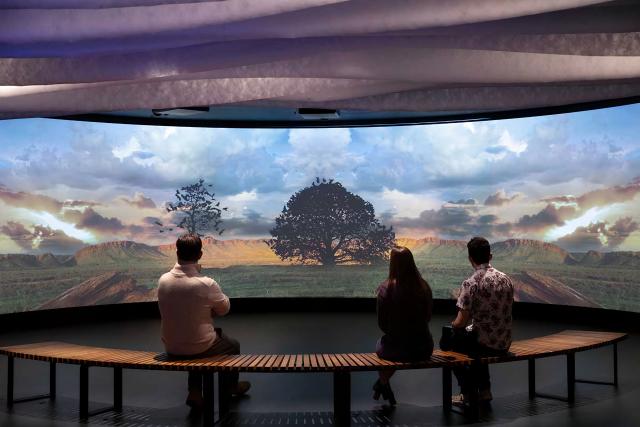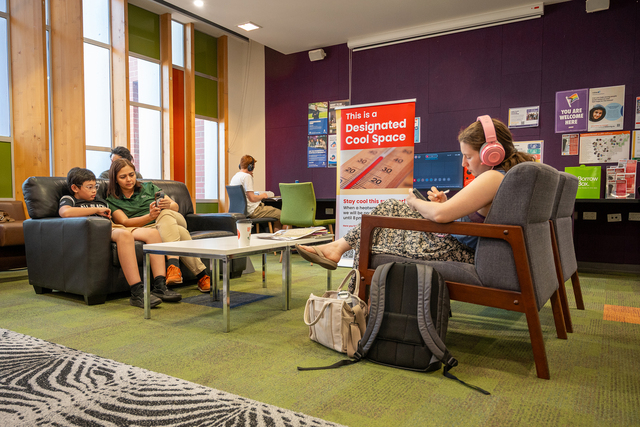The National Museum of Australia in Canberra has launched two new state-of-the-art galleries in its biggest redevelopment since opening to the public in 2001.
In a $34 million revamp that reimagines more than one-third of the building, the museum has launched the groundbreaking Great Southern Land environmental gallery and the innovative children’s Tim and Gina Fairfax Discovery Centre.
The Great Southern Land gallery was designed by the renowned New York-based Local Projects, best known for their acclaimed work on the National September 11 Memorial and Museum in New York.
The Tim and Gina Fairfax Discovery Centre is a fun, immersive play space designed and curated for children aged 0–6, their families and carers.
Federal Arts Minister, Hon Tony Burke MP, welcomed the redevelopment.
“I’m thrilled to see these galleries open today, which showcase our unique environment and natural history,” Minister Burke said.
“I’m particularly excited about the role they will play in showcasing the connection First Nations people have to country.
“I’m confident that audiences of all ages will walk away feeling educated and inspired by the diverse cultural experiences on offer,” Minister Burke said.
National Museum director, Dr Mathew Trinca, said the two new galleries represent a major new offering to the Australia public.
“This is a pivotal moment in the history of the National Museum, and I am thrilled to see the years of hard work and planning come to fruition in the incredible Great Southern Land environmental gallery and the remarkable Tim and Gina Fairfax Discovery Centre.”
“The National Museum is celebrating more than 20 years of engagement with the Australian public and these new developments will see it go from strength to strength in the decades ahead,” Dr Trinca said.
“I’d like to take this opportunity to thank Tim and Gina Fairfax, and all the experts who supported and worked on both galleries for many years, for their generous guidance and expertise,” Dr Trinca said.
The Great Southern Land gallery explores our fundamental relationship to the land, incorporating the stories of the First Peoples who have lived on the continent for at least 65,000 years and the stories of all those who followed.
National Museum Council member and Indigenous Reference Group chair, Fiona Jose, said the new gallery celebrates the stories of Australia’s deep history and First Peoples.
“Stories of how First Nations peoples have belonged to, and cared for, Country over countless generations are woven throughout the gallery. This new gallery shows how Aboriginal and Torres Strait Islander knowledge of this ancient continent is a heritage all Australians can draw on, and key to meeting our shared responsibility to heal and nourish the land,” Ms Jose said.
The Great Southern Land gallery explores the vast and complex Australian continent, its ancient origins, geological features, unique species, natural forces, and the part humans play in the ecosystem. It features exciting interactive and immersive digital experiences relating to Australia’s unique environment and natural history.
The gallery features more than 2000 objects, and rich multi-sensory experiences show how the continent has changed over time and how those changes can guide the nation through future challenges.
The Discovery Centre invites children to explore Australia’s iconic animals and stories, including kangaroos and bunyips, an early explorer’s cat, and social media star Chris the sheep.
Leading Australian philanthropists Mr Tim Fairfax AC and Mrs Gina Fairfax AC supported the development of the new dedicated children’s play and education space and said they are delighted to see the new Discovery Centre open to the public.
“This new centre was designed to engage children with Australian stories and the work of the Museum. It provides interactive educational play onsite, and facilities to reach regional and remote communities,” Mr and Mrs Fairfax said.
As part of the Great Southern Land gallery launch, the National Museum will display in its Gandel Atrium, a Sequential Circuits Prophet 5 synthesiser, which is the same model of instrument used by Iva Davies, from the iconic rock band ICEHOUSE, to compose the 1982 hit song of the same name, ‘Great Southern Land’.
“Back in 1982 when I created the title ’Great Southern Land’ for a song I was writing, I had no idea what an impact it would have on listeners everywhere, and especially Australian listeners,” Iva Davies said.
“To have the song included as a part of the incredible project, that the National Museum of Australia has undertaken, to trace the history, diversity and the magic of our country is very humbling.”
“My thanks to the great team, who have put together the gallery and exhibition, for all their work and for including my song as part of their study of our Great Southern Land,” Mr Davies said.
When Icehouse started out in 1977, synthesiser technology was still relatively new.
“The Prophet 5 is so called because it could play five notes at a time, and this meant that it could play a full musical chord. It also could store the sounds you created on it in “memory” slots, and this was incredibly useful especially for live performing,” Mr Davies said.
“The first song that was produced in that exploration was “Great Southern Land” and the Prophet 5 sound is the backbone of that song. You’ll recognise the sound of that very first long note immediately as coming from the Prophet,“ Mr Davies said.
To coincide with the gallery launch, ICEHOUSE has announced a one-off concert, supported by Mix106.3, as part of its national Great Southern Land 2022 – The Concert Series which will be held at the National Museum of Australia on Friday 4 November 2022.

